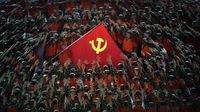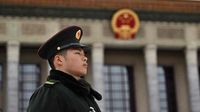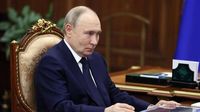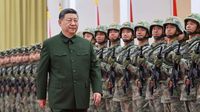In a significant development concerning the ongoing conflict in Ukraine, China is reportedly considering sending troops as part of a 'Coalition of the Willing' to help secure a ceasefire. This move could potentially enhance the acceptance of peacekeepers in the region, particularly by Russia, which has been a key ally of Beijing. According to diplomatic sources in Brussels, the integration of China could indeed increase the likelihood of Russia agreeing to the presence of international forces in Ukraine.
French President Emmanuel Macron has announced an upcoming summit of Ukraine supporters set to take place on Thursday, March 27, 2025, in Paris. Leading figures including Ukrainian President Volodymyr Selenskyj will be present to discuss the continuing support for Ukraine amidst a backdrop of escalating military engagement by Russian forces.
Macron has articulated that the primary goal of this summit is to reaffirm a strong commitment to Ukraine from different nations and likely to specify this commitment more clearly than before. During previous discussions, he stated, "The goal for me on Thursday is to have a repeated and perhaps a little more specified commitment to support Ukraine in the short term." Additionally, British Prime Minister Keir Starmer has indicated that the UK would support the deployment of peacekeepers in Ukraine if a ceasefire were to be established between Moscow and Kyiv.
The backdrop to these developments is a planned dialogue involving US and Russian officials, scheduled for Monday, March 24, 2025, in Riyadh. American representatives will also meet with officials from Kyiv to discuss a potential ceasefire that remains elusive. This reflects international attempts to mediate peace while the situation on the ground remains fraught with violence and tragedy.
Despite these diplomatic efforts, Russia has escalated its military actions, continuing airstrikes against Ukrainian cities, causing significant civilian casualties. Reports indicate recent bombings in areas including Odessa and Saporischschja, with civilians suffering from the repercussions of such aggressive military maneuvers. A stark reminder of this ongoing conflict is the recent death of a 14-year-old girl in a Russian attack, emphasizing the dire humanitarian stakes involved.
While the discussion around China's possible involvement in a peacekeeping mission is seen positively among EU diplomats, it remains a highly sensitive topic. The situation is complex, with China being a close ally to Russia, raising questions about the effectiveness and implications of any such deployment.
As these discussions unfold, confidence in negotiations remains shaken by mutual accusations between the conflicting sides over breaches of ceasefire agreements, particularly an accord not to target energy infrastructure for 30 days, which both nations have alleged violations against each other.
In the meantime, tensions on the battlefield continue to rise, as mutual drone attacks were reported across various regions, illustrating the hostile environment that persists even as diplomatic avenues are pursued. The Ukrainian Air Force reported significant use of drones by Russian forces, with approximately 179 drones launched in recent attacks, resulting in widespread damage across multiple locations.
Such incidents further complicate the potential for peace, as Russia has claimed a right to retaliate against Ukrainian assaults on its energy assets, accusing Ukraine of persistent provocations. This atmosphere of mistrust and military escalation highlights the challenges that lie ahead for any viable peace settlement.
Concluding, the engagement of new international players like China could open avenues for discussions surrounding peace in Ukraine, but the path is littered with challenges. With military actions persisting and potential negotiations in progress, the world watches closely to see if diplomacy can triumph over enduring conflict.







